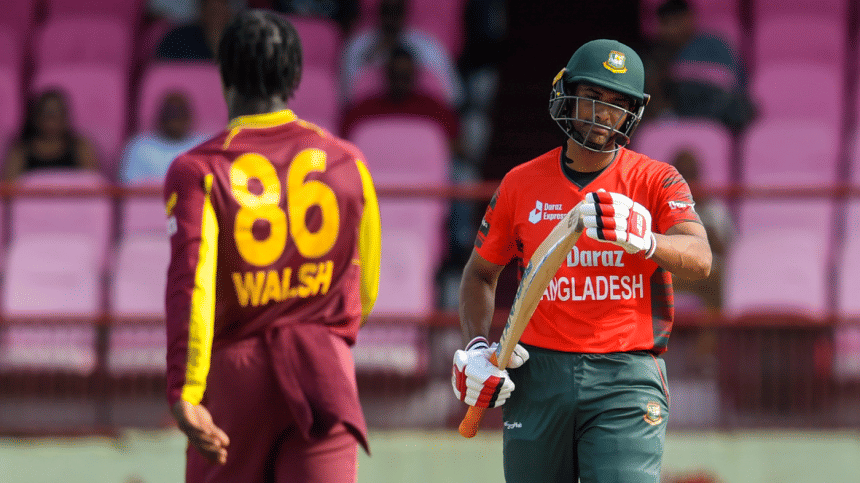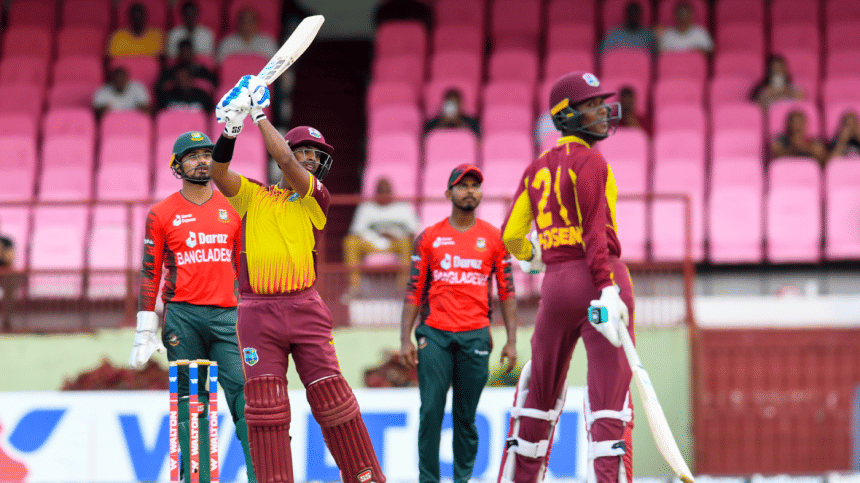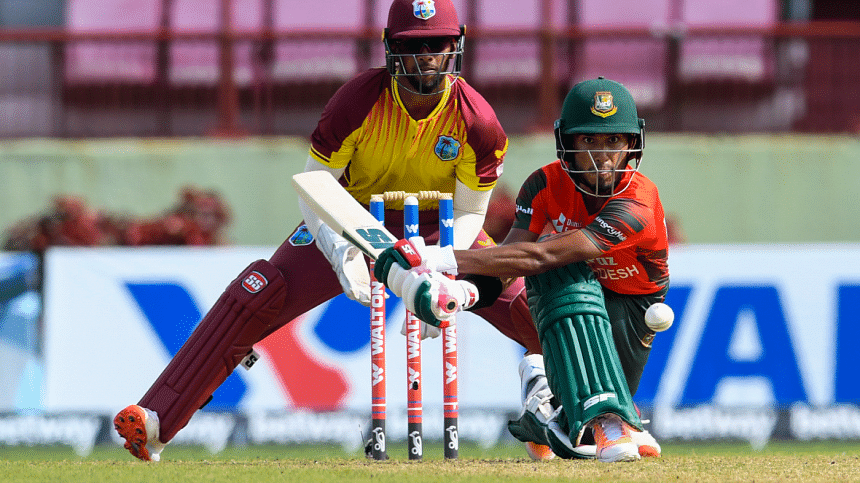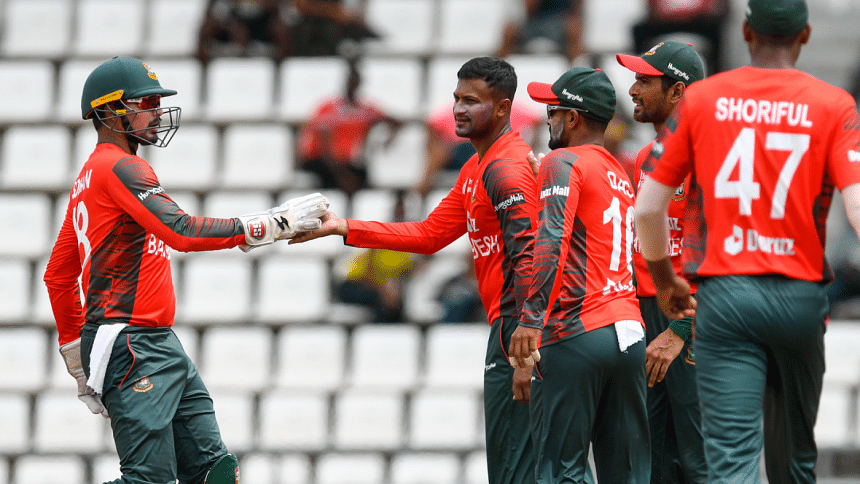Has Mahmudullah muddied the waters further?

"Our bowlers should have stuck to their lines," Bangladesh captain Mahmudullah Riyad said after his side suffered a five-wicket defeat over West Indies in the third and final T20I at the Providence Stadium in Guyana on Thursday.
The home side comfortably chased Bangladesh's total of 163 with 10 balls to spare to seal the three-match series 2-0 after the first T20I got washed out due to inclement weather.

It's quite apparent that Mahmudullah resorted to shifting the majority of the blame towards his bowling unit. Interestingly, a day before the series-deciding encounter, he had mentioned that he has "huge faith in the bowling department".
However, by further stating that the "batting department has made their plans clear", it can be argued that the Bangladesh captain muddied the waters regarding his vision of how the shortest format ought to be approached by the Tigers.
The clarity, or lack thereof, of approaching powerplay and death overs
Having elected to bat first, Bangladesh picked up 44 runs for the loss of two wickets after the end of six overs of powerplay while the last four overs at the death yielded no more than 34 runs despite having seven wickets in hand. Combining the two phases, it meant that Mahmudullah and Co picked up less runs (47 per cent of total) compared to the remainder of the 10 overs in the middle phase, where Liton Das and Afif Hossain combined for a 57-run partnership off 44 deliveries.

While the long-established norm of T20 cricket has been to fully capitalise on the Powerplay and death overs, it begs the question regarding where the Tigers' batting vision lies, especially with the T20 World Cup fast approaching, slated for October this year.
Leadership, on and off the field, leaves a lot to be desired
Mahmudullah arrived in the middle at number five after Liton fell. With his side, at 99 for three after 12.5 overs, desperately needing a cameo innings as wished by the skipper himself in the pre-match press conference, Mahmudullah played a perplexing one while trying to lead from the front.
Riyad's 22-run knock in 20 balls had seven dot balls and also the fact that he failed to rotate the strike in four deliveries in succession after getting off the mark, and that too in the 14th over of the innings, significantly dampened the momentum Bangladesh had built prior. Further, if one removes the two fours and a six he struck, Mahmudullah is left with a sorry figure of eight runs off 17 balls.
And when it came to defending 163, the way he handled the bowlers also raised many eyebrows, especially for the fact that Shakib Al Hasan ended up bowling only two overs after picking a wicket and having conceded just four runs in his first over, which was the innings' seventh. Instead of attempting to break the crucial stand of Nicholas Pooran and Kyle Mayers, the decision of saving Shakib for the death overs proved to be a strange one.

"We were 10 runs short," Mahmudullah said furthermore while reiterating that the bowling "really needs to improve". As a leader, however, it would have made more sense had he addressed bits of his own game in public. After all, one of the key yet underrated hallmarks of good leaders is to admit when they've made mistakes.

 For all latest news, follow The Daily Star's Google News channel.
For all latest news, follow The Daily Star's Google News channel. 








Comments